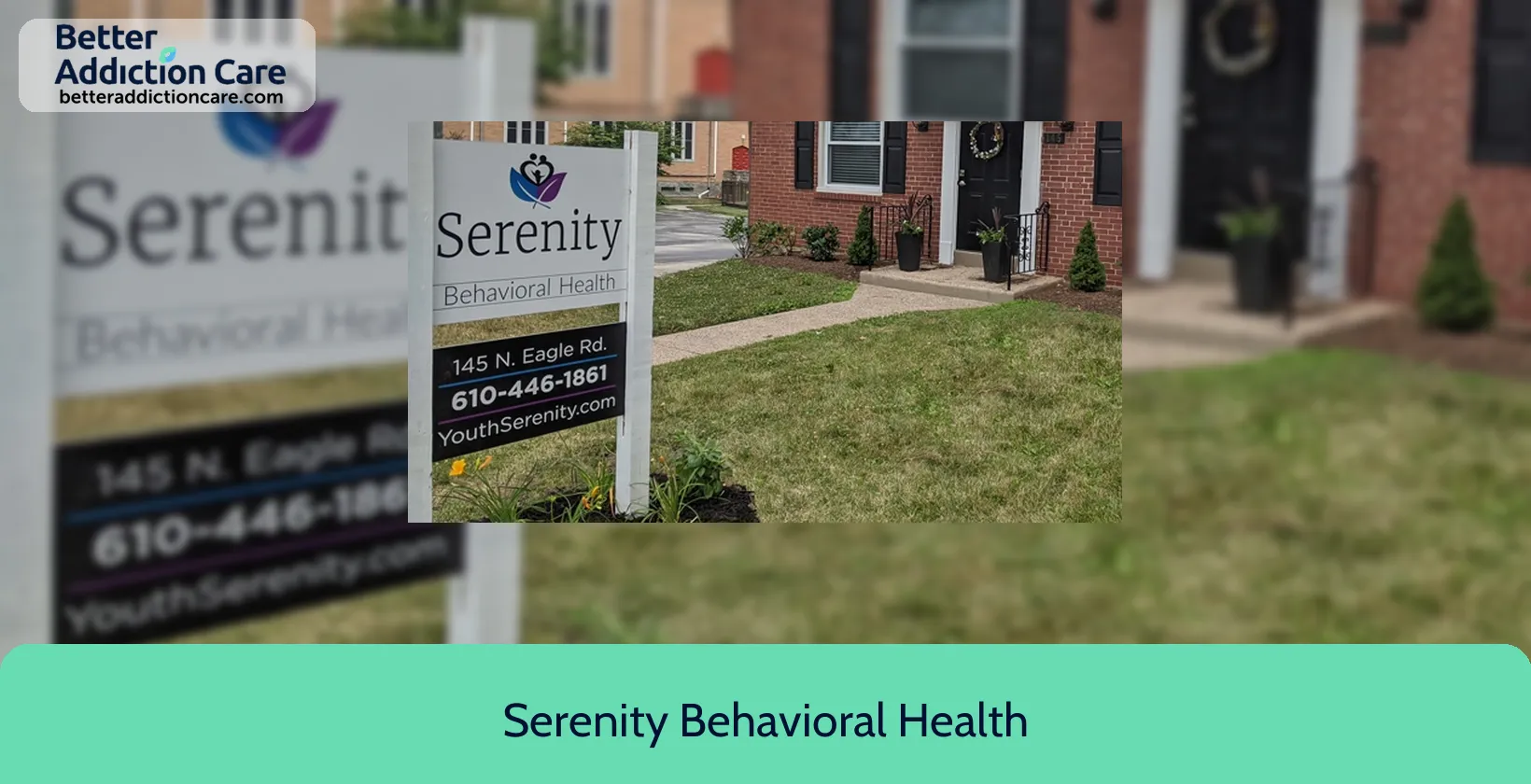Serenity Behavioral Health
Overview
Serenity Behavioral Health is a mental health treatment center for people seeking treatment near Delaware County. As part of their treatment modalities for recovery, Serenity Behavioral Health provides individual psychotherapy, couples/family therapy, and cognitive behavioral therapy during treatment. Serenity Behavioral Health is located in Havertown, Pennsylvania, accepting cash or self-payment for treatment.
Serenity Behavioral Health at a Glance
Payment Options
- Cash or self-payment
- State-financed health insurance plan other than Medicaid
- Private health insurance
Assessments
- Screening for tobacco use
- Comprehensive substance use assessment
- Screening for mental disorders
- Screening for substance use
- Comprehensive mental health assessment
Age Groups
- Adolescents
- Young adults
- Children/adolescents
- Adults
Ancillary Services
- Case management service
- Family psychoeducation
- Suicide prevention services
- Mental health services
- Social skills development
Highlights About Serenity Behavioral Health
6.83/10
With an overall rating of 6.83/10, this facility has following balanced range of services. Alcohol Rehabilitation: 8.00/10, Drug Rehab and Detox: 6.00/10, Insurance and Payments: 6.00/10, Treatment Options: 7.33/10.-
Alcohol Rehabilitation 8.00
-
Treatment Options 7.33
-
Drug Rehab and Detox 6.00
-
Insurance and Payments 6.00
Treatment At Serenity Behavioral Health
Treatment Conditions
- Alcoholism
- Mental health treatment
- Substance use treatment
- Co-occurring Disorders
Care Levels
- Outpatient
- Intensive outpatient treatment
- Regular outpatient treatment
- Aftercare
Treatment Modalities
- Individual psychotherapy
- Couples/family therapy
- Cognitive behavioral therapy
- Integrated Mental and Substance Use Disorder treatment
- Telemedicine/telehealth therapy
Ancillary Services
Additional Services
- Pharmacotherapies administered during treatment
- Mentoring/peer support
- Drug or alcohol urine screening
Special Programs
- Clients with co-occurring mental and substance use disorders
- Children/adolescents with serious emotional disturbance (SED)
- Clients who have experienced trauma
Common Questions About Serenity Behavioral Health
Contact Information
Read our Most Recent Article About Drug Addiction
DISCLAIMER: The facility name, logo and brand are the property and registered trademarks of Serenity Behavioral Health, and are being used for identification and informational purposes only. Use of these names, logos and brands shall not imply endorsement. BetterAddictionCare.com is not affiliated with or sponsored by Serenity Behavioral Health.









